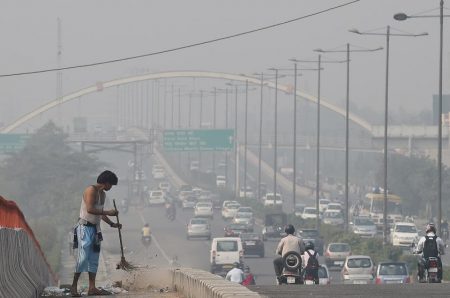August 28, 2018 – On issues from climate change to air pollution, zero waste, and human sustainability in the 21st century, it is cities that are leading the way. Why is this? Because the majority of humanity are now urban dwellers with 55% of us living in cities.
According to the United Nations Department of Economic and Social Affairs, the number of us living in urban centres will grow to 68% by 2050, that’s an increase of 2.5 billion taking up residence in cities.
So if cities aren’t leading the way on key sustainability issues, then humanity is heading for a crisis of survival. Much of this anticipated urban population shift will happen in Africa, Asia, and South America where cities are already bursting at the seems from rapid growth. Sustainable development in these urban centres will be far more challenging because of the lack of urban planning and financial resources to deal with the fastest human population shift ever seen on the planet.
Just how fast are cities growing? By 2030 the planet will have 43 with populations exceeding 10 million. One in eight of us will live in 33 of these megalopoli. That means one in eight of us will be dosed with urban air pollution, a garbage problem, potentially unsafe water, and global pandemics from opportunistic diseases transmitted from human to human in confined spaces, let alone all the other stresses that come with city living.
We have all seen pictures of China’s smog-ridden cities where air pollution is responsible for causing respiratory problems. According to the World Health Organization, over 12 million globally each year die from air pollution’s effects. It is the fourth highest risk factor for premature death representing one in 10.
But now we have found another consequence of air polluted urban environments from a study conducted by Chinese researchers released in the last 24 hours showing that polluted air is not only a mortality risk, but also effects cognitive abilities. In a report appearing in the journal Proceedings of the National Academy of Sciences (PNAS) it states that over a period from 2010 to 2014, cognitive skill test results on 20,000 Chinese exposed to toxic air, scoring of language and mathematics skills in air polluted centres across the country with higher than safe levels of nitrogen and sulfur dioxide from smokestack and vehicle emissions showed a decline equated to a loss of one full year of education on average. For those in the study with less than average education the exposure to these pollutants equated to a loss of more than one year of education. When you consider the importance of education in the 21st century to help all of humanity manage the challenges we face, no country or culture can afford a cognitive decline in its general population. And certainly no country can wilfully expose its citizens to such risks that cause cognitive impairment.
So it would seem that urban air pollution must be addressed with greater haste than has been applied to date. Cities have been organizing to deal with air pollution, climate change, garbage, and other challenges. Groups like C40, representing many of the world’s most populous cities, are pursuing ambitious action plans to create more resilient communities. C40’s ultimate goal is to eliminate air pollution through a zero carbon strategy.
Twenty-three of its members have also announced a zero carbon strategy which includes zero waste. In tackling waste they want to eliminate the greenhouse gas emissions (GHGs) associated with waste generation and storage. In particular, they are targeting methane (CH4). Collectively if all the cities of the world were to move to zero waste we would see an immediate annual GHG emission’s reduction of CH4 by more than 20%. (Other CH4 sources of pollution include the oil and gas industry and agriculture.
To reduce CH4 from waste would help countries move closer to achieving targets set by the Paris Climate Agreement of 2015. See if your city is one of those participating in this new initiative. A partial list includes New York, Philadelphia, Washington, Auckland, Copenhagen, Dubai, London, Milan, Montreal, Paris, Rotterdam, San Francisco, Sydney, Tel Aviv, Tokyo, Toronto, Vancouver, and others.
In the announcement of this C40 initiative, cities acknowledge themselves as the leaders in advancing the goals of the Paris Climate Agreement in the absence of national, state, and provincial progress. States Bill de Blasio, New York City’s mayor, it is cities that are “taking matters into our own hands.” Echoing similar sentiments, Anne Hidalgo, mayor of Paris states, “cities are getting the job done, inventing the new practices….the future is taking place in cities.”









